Dithiocyano methane
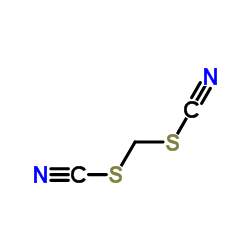
Dithiocyano methane structure
|
Common Name | Dithiocyano methane | ||
|---|---|---|---|---|
| CAS Number | 6317-18-6 | Molecular Weight | 130.191 | |
| Density | 1.4±0.1 g/cm3 | Boiling Point | 285.2±23.0 °C at 760 mmHg | |
| Molecular Formula | C3H2N2S2 | Melting Point | 104-106 °C(lit.) | |
| MSDS | N/A | Flash Point | 126.3±22.6 °C | |
| Name | Methylenedithiocyanate |
|---|---|
| Synonym | More Synonyms |
| Density | 1.4±0.1 g/cm3 |
|---|---|
| Boiling Point | 285.2±23.0 °C at 760 mmHg |
| Melting Point | 104-106 °C(lit.) |
| Molecular Formula | C3H2N2S2 |
| Molecular Weight | 130.191 |
| Flash Point | 126.3±22.6 °C |
| Exact Mass | 129.965942 |
| PSA | 98.18000 |
| LogP | 0.80 |
| Vapour Pressure | 0.0±0.6 mmHg at 25°C |
| Index of Refraction | 1.601 |
| Stability | Stable, but moisture sensitive. Reacts vigorously with strong bases, strong oxidizing agents. Reacts with water. |
CHEMICAL IDENTIFICATION
HEALTH HAZARD DATAACUTE TOXICITY DATA
|
| Hazard Codes | T+:Verytoxic;N:Dangerous for the environment; |
|---|---|
| Risk Phrases | R25;R26;R34;R43;R50 |
| Safety Phrases | S26-S28-S36/37/39-S45-S61-S28A |
| RIDADR | UN 2811 6.1/PG 2 |
| WGK Germany | 3 |
| RTECS | XL1560000 |
| Packaging Group | II |
| Hazard Class | 8 |
| HS Code | 2930909059 |
|
~51% 
Dithiocyano methane CAS#:6317-18-6 |
| Literature: Kantlehner, Willi; Kapassakalidis, Johannis J.; Speh, Peter; Braeuner, Hans-Juergen Liebigs Annalen der Chemie, 1980 , # 3 p. 389 - 393 |
|
~% 
Dithiocyano methane CAS#:6317-18-6 |
| Literature: Chemische Berichte, , vol. 7, p. 1282 |
|
~% 
Dithiocyano methane CAS#:6317-18-6 |
| Literature: Chemische Berichte, , vol. 7, p. 1282 |
|
~%
Detail
|
| Literature: Bl.Sci.pharmachol., vol. 29, p. 426 Chem. Zentralbl., , vol. 94, # I p. 500 |
| HS Code | 2930909059 |
|---|---|
| Summary | HS:2930909059 hydrazinecarbothioamide VAT:17.0% Tax rebate rate:9.0% Supervision conditions:S MFN tariff:6.5% General tariff:30.0% |
| Dithiocyano methane |
| MFCD00001833 |
| methanediyl bis(thiocyanate) |
| thiocyanatomethyl thiocyanate |
| EINECS 228-652-3 |
| Methandiylbis(thiocyanat) |
| Thiocyanic acid, methylene ester |
| Methylene bis(thiocyanate) |
| methylene dithiocyanate |
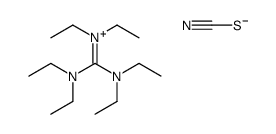
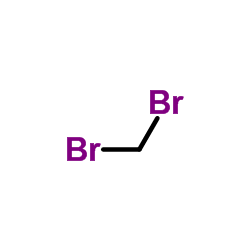

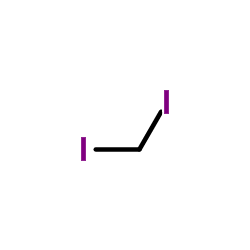
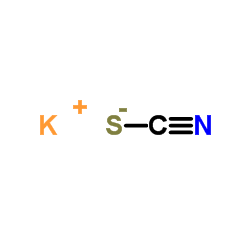

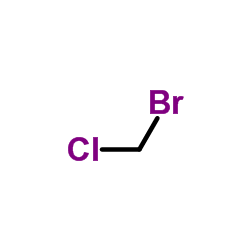

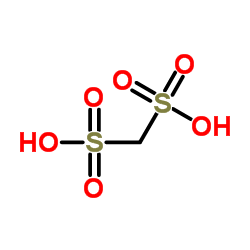 CAS#:503-40-2
CAS#:503-40-2
